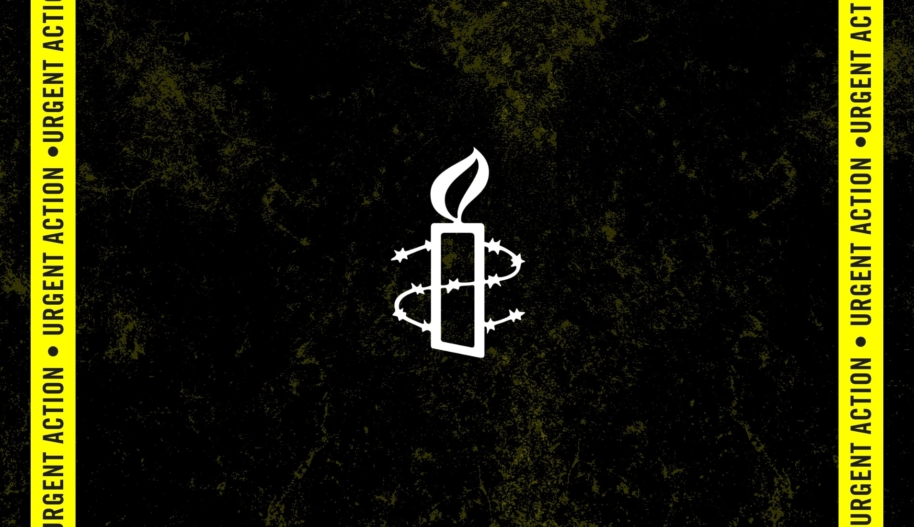Thousands of people have taken to the streets to protest the judicial actions initiated against key actors of the recent electoral process, among them electoral authorities and members of the elected party. They are calling for the resignation of the Attorney General and other members of the Public Prosecutor’s Office who have led these criminal proceedings. The government and the Constitutional Court have issued statements and decisions that jeopardize the right to peaceful protest and could lead to the use of force against demonstrators. We urge Guatemalan authorities to guarantee the right of peaceful assembly.
Here’s what you can do:
Write to the President of Guatemala urging him to:
- Respect and guarantee the right of peaceful assembly of those participating in protests in Guatemala, without fear of reprisals.
- Ensure that the Guatemalan authorities refrain from using criminal law, excessive use of force against protesters or any other illegitimate measures to restrict peaceful protests.
Write to:
Mr. Alejandro Giammattei
Private Secretary of the Presidency
6xta avenida 4-41, zona 1
Guatemala City
Guatemala
Email: gestrada@secretariaprivada.gob.gt
Salutation: Your Excellency:
And copy:
Her Excellency Guisela Atalida GODINEZ SAZO
Ambassador
Embassy of the Republic of Guatemala
130 Albert Street, Suite 1010
Ottawa, ON K1P 5G4
Tel: (613) 233-7188 Fax: (613) 233-0135
Background
On October 02, 2023, massive protests were called by the indigenous authorities of 48 Cantons of Totonicapán, the Indigenous Mayoralty of Sololá, Santa Lucía Utatlán, San Cristóbal Totonicapán, the Xinka Parliament, the Ixil People and other indigenous peoples. These protests started in reaction to the series of criminal proceedings led by the Public Ministry against magistrates of the Supreme Electoral Tribunal and the Semilla political party, whose candidate Bernardo Arévalo was elected on August 20, as President of the Republic for 2024-2028.
The demonstrations, demanding the resignation of the Attorney General and other prosecutors of the Public Ministry in charge of those judicial proceedings, were quickly supported by students from several universities as well as numerous other sectors of the population throughout the country. According to information received by Amnesty International, the demonstrations, which include road blockades in different parts of the country are peaceful and have allowed the passage of ambulances and perishable goods in many locations.
Clampdown on protests
However, on October 9, the President of the Republic stated that “the blockades are illegal”, alluding to alleged shortages, “kidnapping” of a truck carrying oxygen, and damages to the country’s economy, as well as alleged acts of violence (several of which were attributed to shock groups or infiltrators), and that the calls for blockades put “at risk the democratic order”.
The President stigmatized the work of the NGOs that have supported the protests, announced that arrest warrants will be requested against students who have participated in the protests and against foreign persons who have given advice and participated in the protests, and that all necessary measures will be taken to reestablish the situation.
On the same day, a group actively involved in the criminalization of justice operators, journalists and human rights defenders filed a criminal complaint against the President of the 48 cantons of Totonicapán. Significant police deployments were also observed, as well as the presence of heavily armed persons guarding a shopping mall in Guatemala City.
Widespread condemnation
The OAS, during the extraordinary session of the Permanent Council held on October 10, emphasized the peaceful nature of the protests and condemned the criminal proceedings initiated against those involved in the electoral process, as did the UN Secretary-General, the United Nations Commissioner for Human Rights, the European Union and the international community.
Despite the Constitutional Court issued a decision in favor of Indigenous People’s right to protest, on October 11, the Constitutional Court also authorized Guatemalan authorities to limit the right to peaceful assembly in order to reestablish “the enjoyment of free movement, access to health and life, security, the right to work, commerce and industry, as well as to guarantee essential services such as transportation, water, drinking water, electricity and any others affected”.
President Giammattei’s announcements occur in a context of closing civic space and generalized criminalization of dissent, that has been documented by Amnesty International. According to the information received, about 60 prosecutors, judges, magistrates, journalists, communicators and human rights defenders have had to leave the country due to the number of unfounded prosecutions they face because of their participation in the fight against impunity and corruption in the country, such as former prosecutor and Prisoner of Conscience Virginia Laparra.
Amnesty International also received information about the opening of unfounded criminal proceedings against several people who participated in the November 2021 protests in Guatemala City (see Amnesty International, Annual report 2022, Guatemala entry)- The organization also documented the use of certain criminal figures such as “kidnapping” to criminalize peaceful protests carried out by authorities and indigenous communities in the country.
In 2020 Amnesty International condemned the reform of the NGO Law, arguing that it could be used to deepen the suspension of NGOs and the criminalization of their members in case their foreign-funded activities threaten “public order”. See https://www.amnesty.org/es/documents/amr34/1811/2020/en/













